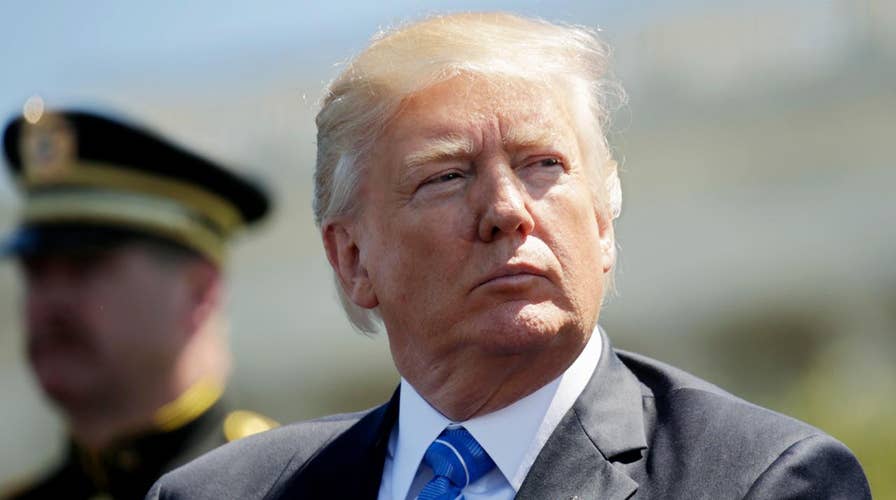Is it legal for Trump to record Oval Office conversations?
The media went into a frenzy after President Trump hinted he may have 'tapes' of conversations with former FBI Director James Comey. If Donald Trump is indeed recording conversations in the Oval Office, is it legal or illegal?
President Trump may be the only one who truly knows if he has “tapes” of his conversations with former FBI Director James Comey – but if he does, it's more of a congressional problem than a legal one.
The president raised the possibility of secret tapes in a tweet Friday. Amid a slew of media leaks about Comey's controversial firing, Trump warned that Comey “better hope that there are no ‘tapes’ of our conversations before he starts leaking to the press!”
Asked Friday if the tweet meant Trump indeed had taped discussions between himself and the ex-top cop, White House Press Secretary Sean Spicer demurred: “The president has nothing further to add on that.”
But if Trump did in fact surreptitiously record his talks with Comey, the act wouldn’t violate Washington, D.C., law or federal law. Both permit “one-party consent” recording, that is, recordings made when only one party to the conversation okays it – which in this hypothetical case would be Trump.
About a century of legal precedent codifying the “informant doctrine” also buttresses Trump’s case.
“The idea is that, even inside your own home, when you divulge information to other individuals, you lose privacy,” Georgetown Law Professor Laura Donohue told Fox News. “And it’s not a violation of your privacy. So that information, for instance, could be used in court.”
But the president is on far shakier ground when it comes to the probable probing of lawmakers – even those from his own party – who appear eager to subpoena such tapes should they exist.
“If, in fact, there are such recordings, I think those recordings will be subpoenaed and I think they will probably have to turn them over,” Sen. Mike Lee, R-Utah, said on “Fox News Sunday.”
Lee added: “You know, we know that there have been instances in the past in which other presidents have made recordings of conversations that have taken place at the White House. And as was made clear earlier in the show, it doesn't always turn out well. It's not necessarily the best idea.”
The Trump “tapes”-gate has – to the dismay of Republicans – harkened back to a scandal involving another president to whom Trump is often compared by his detractors: Richard Nixon.
Nixon secretly taped thousands of hours of phone calls and conversations, a portion of which were subpoenaed during the Watergate hearings and helped to sink Nixon’s presidency by, in the opinion of the special prosecutor, showing Nixon conspired to obstruct justice. Nixon was not the first – or last president – to employ taping, but it appears he was the most extensive practitioner, and, indeed, his recordings have had the most historical impact.
Also important is that Trump quoted the word “tapes” in his tweet. The president and his staff have argued on multiple occasions that the use of quotes can signal a different meaning of the quoted word than its literal connotation.
For instance, after Trump sparked a fire storm by claiming former President Barack Obama had his “wires tapped,” Spicer explained: “The President used the word 'wiretaps' in quotes to mean, broadly, surveillance and other activities.”






















